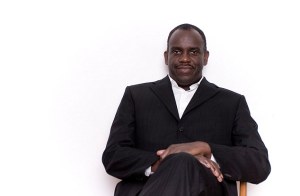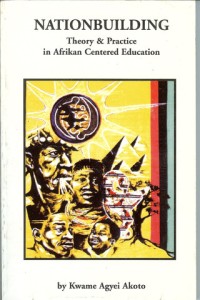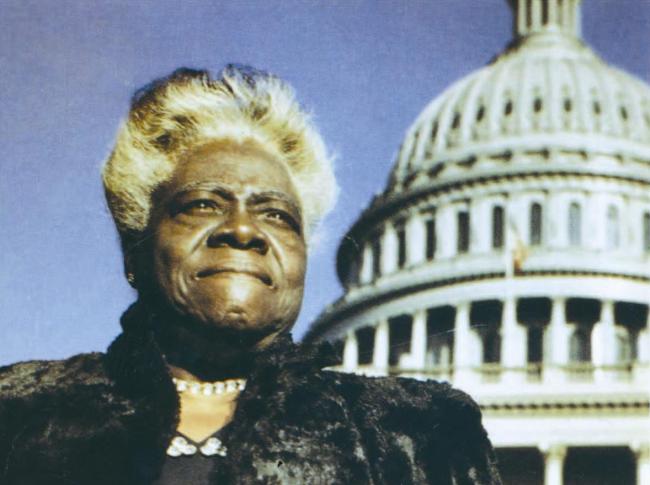Written Aug 2013
————————————

In a recent article for the ‘Readers Digest’ entitled “Black Communities? There’s No Such Thing”, leading Black academic & education consultant, Tony Sewell has taken some pretty comprehensive shots at “Black Pride”:
“Minority” should be the badge that people are trying to rip off. Instead, in the case of certain musicians, authors and others, it can bring you money and fame. This is a corruption and a deceit. We need to ditch gay pride and black pride. Both are meaningless.”
It is Dr. Sewell’s assertion that Black pride, as manifested in a distinct community identity leads to an inevitable consequence:
“The biggest barrier I have to achieving my goal is letting, as many do, my minority status give me a sense of victimhood.”
While the good Doctor’s analysis of the “minority” mentality may be entirely plausible, equating this mentality with Black pride is problematic at best and is in fact A-historical. Furthermore lumping Black and gay pride together, belittles the principles underpinning the many movements inspired by the Black pride ethos.
 For many the foremost exponent of Black Pride is Marcus Mosiah Garvey. His Universal Negro Improvement Association (UNIA) galvanized the descendents of Afrika all over the world to the tune of 11 million people. His message was quintessential Black pride at its very core; “The Black skin is not a badge of shame, but rather a glorious symbol of national greatness.”
For many the foremost exponent of Black Pride is Marcus Mosiah Garvey. His Universal Negro Improvement Association (UNIA) galvanized the descendents of Afrika all over the world to the tune of 11 million people. His message was quintessential Black pride at its very core; “The Black skin is not a badge of shame, but rather a glorious symbol of national greatness.”
Garvey’s pronouncements, backed by the monumental achievements of the UNIA, give expression to a racial pride and dignity that saw Black people look well beyond their numbers in any single nation state. Instead, Black people were encouraged to see themselves as part of a global nation, with a shared collective heritage that would inspire a future of excellence.
This is a theme replicated by all Black power movements that followed. Whether articulated by Kwame Nkrumah, Malcolm X, Winnie Mandela and even Martin Luther King, it is clear that Black pride inspired its adherents to think of themselves as a GLOBAL MAJORITY, as opposed to various little ethnic minorities.
Independent educational institutions have been a defining focus of Black power movements through out the last century. While Dr. Sewell runs Generating Genius, a science oriented program primarily catering for young Black Boys, he is a critic of the idea of Black Schools and does not feel that pride in ones heritage, encourages academic achievement:
“as part of the course, we deprogramme them from thinking they’re locked into an ethnic community. We want them to be defined by what they know, not what they look like…”
He goes on to say:
“There are so-called community leaders who say that community identity gives people a sense of belonging and a validation of culture. They have a point, but too many young people have the status thrust upon them. It can lock them into an identity that limits them by defining how they should speak or who they should associate with.”
So if owning a cultural identity imposes limitation, what inspires Black children to fulfill their potential? Dr. Sewell provides a window in to his thoughts on the matter with the following statement:
“And too often what poses as cultural identity is, in reality, ignorance or bad education. Black and other children need to be schooled in the lexicon of the mainstream, where “street talk” is not seen as another version of Chaucer. The standard Shakespearean canon should predominate against the curse of a rap version of Macbeth. I love rap music, by the way, but it shouldn’t be a defining feature of young black men. They are so much more than a soundtrack.”
The contrast between good education and Black cultural identity here, gives credence to the  importance of Black pride. While it is undoubtedly imperative for Black children to master Standard English, the parlance of William has not been the mainstream lexicon for well over a century; In which case it is the cultural significance of Shakespeare that gives his work lasting value.
importance of Black pride. While it is undoubtedly imperative for Black children to master Standard English, the parlance of William has not been the mainstream lexicon for well over a century; In which case it is the cultural significance of Shakespeare that gives his work lasting value.
Dr. Sewells pronouncements lend themselves to the idea that European cultural identity is the standard from which to assess all others. Afrikan (Black) Culture therefore, produces ignorance because it fails to meet the requirements of this standard. I would humbly suggest that it is this colonial ideal that sub-consciously produces the minority complex in Black children.
If we “want them to be defined by what they know”, then Black children should be afforded the knowledge that Black people have a tradition of excellence that speaks to and is expressed through our own history and culture. As significant as Shakespeare is, aptitude in recitation of his prose & sonnets are not a universal maker of intelligence, nor is it the only way to achieve excellence. Black culture therefore is equipped with standards that are just as valuable if not more so in relation to Black children.
Dr. Sewells declaration of Love for Hip-Hop are pleasantly surprising in light of his appearance in a recent Google debate on the subject. He may therefore see value in the fact that UK MCs Akala, Bashy and Lady Leshur along side vocalist Josh Osho, are preparing to go on a Hip-Hop Shakespeare tour this November. The tour provides edutaining experiences for young people, teaching mastery of Shakespeare not simply as Hip-Hop adaptation, but in its original linguistic form.
It is also necessary to note that far from engendering “victimhood”, Black pride also provides a purpose for education. Indeed it was Mary Bethune who proclaimed:

“The drums of Africa still beat in my heart. They will not let me rest while there is a single Negro boy or girl without a chance to prove his worth.”
She rose to become one of the key Educationalists in history, instilling Black Pride and academic excellence in Black Children. Booker T. Washington inspired Marcus Garvey in a similar vein. For Garvey, Black pride was not a vein pursuit, but an essential component for Black excellence. While he said:
“Africa has created millions, countless millions of black men and women in war and in peace, whose luster and bravery outshine that of any other people. Then why not see good and perfection in ourselves?”
He also implored
“…in your homes and everywhere possible, you must teach the higher development of science to your children; and make sure; and make sure that we have a race of scientists par excellence. For in religion and science lies our only hope to withstand the evil designs of modern materialism.”
There is no dichotomy between Black Identity and achievement. Every Black child has a  right to see their heritage and culture as synonymous with excellence. If would be a great thing if we were to make this the norm. To recapitulate Garvey’s intention:
right to see their heritage and culture as synonymous with excellence. If would be a great thing if we were to make this the norm. To recapitulate Garvey’s intention:
“The world has made being Black a crime…. I intend to make it a virtue….”

Pride is an abomination.
From his quote, Marcus Garvey sounds like a full blown racist.